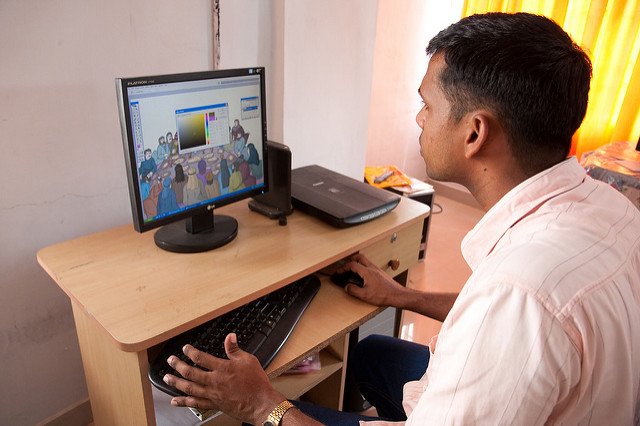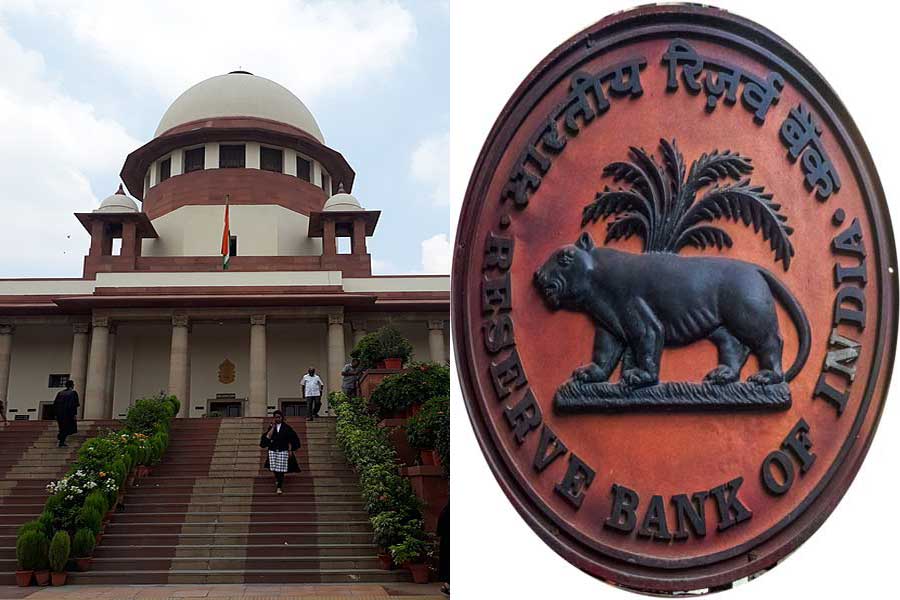By Dr. Dhanu Raj and Deepthi Mary Mathew
As expected, there is long queue of persons outside the taluk supply offices for commissions and omissions in the new batch of ration cards getting ready for distribution in Kerala. Taking into account the huge turnout at the taluk offices, the Minister for Food and Civil Supplies has issued a statement directing the village and panchayat offices to accept complaints regarding corrections. Already late in the issuing of ration cards for a whopping 7.8 million households, this exercise has made a mockery of the “digitally literate State” of Kerala. Thanks to the obdurate philosophy of governance nurtured by the major political parties that have been in power successively.
The data entry work for the renewal of ration cards is carried out by various government agencies like Centre for Development of Imaging Technology (CDIT), Akshaya and Kudumbashree, which works under the Department of Local Self Government, Akshaya, under the IT Department, and CDIT under the Department of Information and Public Relations.
These agencies charge the government for their work, thus incurring a heavy cost to the State exchequer. For instance, Kudumbashree charges Rs. 30 per entry. Despite the high spending, the efficiency of the agencies involved is under scrutiny. There is no chance for blame game for any political party, since these mistakes and neglect were part of the exercise from the beginning.
As the government believes in mass welfare by creating jobs by the State machinery by any means, even at the cost of loss of man-hours and inefficient service delivery systems to the public, the operation and implementation of the ration card scheme seems to have gone to non-competent entities. The refusal to outsource the data entry work clearly shows the not-so-ready attitude towards downsizing by the government.It is not the first time that Kerala is suffering because of the inefficiency of the government agencies involved in delivering services to the people. A year ago, the failure of Kerala Book and Publishing Society in printing and distributing textbooks to school students on time was discussed and debated in the State. In both cases, the government agencies had the monopoly in delivering services, and they failed miserably in meeting the needs of the people.
The present situation also reflects the lack of urge for modernisation, as we are still debating whether a private or public company should implement the software upgrade instead of the inefficacy of the governance system. Remember, this is a country where more than a billion Aadhar cards were issued without any hassle and the processing of passport applications is done in a set time limit by a world-class Indian IT firm. There are more than 37 passport offices and 90 Passport Seva Kendra’s in the country. Around 1 crore passports were issued without delay in 2014–15. When it comes to the number of passports issued, Kerala occupies the top spot with more than 11 lakh passports issued in 2015 alone. But even with more than 60 Supplyco offices across the State, Kerala is finding it difficult to make the necessary corrections and issue the ration cards within the time limit. It clearly shows that the digitally literate State lags behind in making the necessary software upgrade that could have made the lives of millions of Keralites easy.
Governments and banks across the globe are making use of the services of various IT companies in India for improving their efficiency in delivering services. Yet, Kerala is not ready to accommodate private IT companies, as it considers private companies to work only for profit.
Kerala owns the credential of being the first digital State in India with the highest mobile and internet penetration, but the e-governance standards in Kerala are still a nurtured dream. Successive governments have not taken any strong measures to strengthen e-governance in the State. They concentrate on creating more departments, as it can help generate more employment opportunities. All the political parties in Kerala follow the same ideology because of the accepted belief of the government being the major employer in the State. Kerala, despite its small population, is the State with the highest number of government departments and government employees. If e-governance is strengthened, the relevance of most of these departments will be questioned. Hence, the political parties are not enthusiastic about strengthening e-governance in Kerala, as they want to sustain all the government departments and add more numbers to their account.
During the 2016 Assembly elections campaign, the UDF had projected the declaration of Kerala as the first digital State in the country as one its achievements. But the events that are happening in Kerala should not have happened in a digital State. The Chief Minister of Kerala had exhorted the government employees to attend the office without break or delay. The present scenario could have been a classic example to showcase how ration cards could be digitalised and could be applied for sitting at home.
As many of the cooperative banks are still debating the issuance of debit cards to stay afloat in the business, there is no wonder that the Government of Kerala is still relying on obsolete service delivery models.
Dr. D. Dhanuraj is Chairman for Centre for Public Policy Research (CPPR). Deepthi Mary Mathew is Research Associate, CPPR – Centre for Comparative Studies.
Views expressed are personal of the authors and do not reflect the views of The Kochi Post.
Main photograph by Elyse Patten via Flickr.







